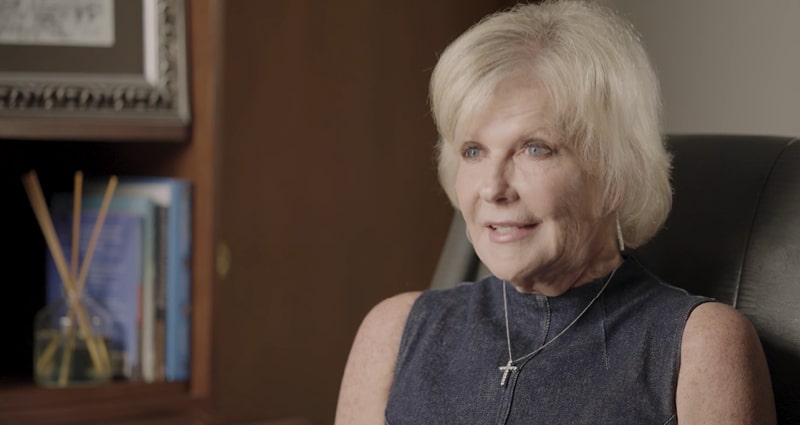Going to the emergency room can be a stressful experience. There are a lot of unknowns, such as how long the wait might be or figuring out what’s really making you feel bad.
For Terri White, going to the emergency room at Our Lady of the Lake Regional Medical Center turned out to be a life-saving decision. Thanks to a first-of-its-kind test, the emergency team was able to diagnose her condition accurately and quickly in a way that no other hospital can.
“It was the right place to be at the right time, or I might not be sitting here having this conversation,” Terri says today, reflecting on her experience.
Quick and Accurate Care for Terri
In September 2023, Terri was returning from a family trip over Labor Day weekend. She wasn’t feeling well and started running a high fever. Her sister, who is a nurse, urged her to go to the emergency room.
Terri didn’t know it at the time, but her appendix had ruptured, causing her to be septic.
Sepsis occurs when the body overreacts to an infection, damaging vital organs and tissue in the process. It’s often misdiagnosed, and hospitals don’t have a tried-and-true method to test for it – which is why sepsis is the No. 1 killer of patients who admit to the emergency room.
In Terri’s case, though, going to Our Lady of the Lake’s emergency room truly was a case of the right place at the right time.
Just a few months prior, Our Lady of the Lake launched a first-of-its-kind sepsis test that was developed and researched right here at the hospital. Following FDA approval in early 2023, the test – known as IntelliSep – became fully operational in the emergency room in August 2023. Our Lady of the Lake is currently the only hospital in the country to have such technology.
In less than 10 minutes using a simple blood draw, the test can determine if there’s a likelihood the patient is suffering from sepsis.
After seeing Terri’s results, the emergency care team was able to quickly pull her from the waiting room, starting her on the necessary antibiotics right away.
She was scared at first.
“I didn’t really have a true concept of what sepsis was. I’d heard of it. And sadly, what I’d heard is there were not a lot of people that survived it,” Terri says. “But the nurse was like, ‘You’re going to be OK. We know what this is now, and we know what antibiotics to give you.’”
Life-saving Research Close to Home
Christopher Thomas, MD, vice president and chief quality officer for Franciscan Missionaries of Our Lady Health System, says cases like Terri’s happen all the time in hospitals across the country, but those medical facilities don’t have the technology to catch sepsis early.
“We wouldn’t have had a test to tell us ahead of time that her immune system was acting strangely, that we needed to think about her differently and that this wasn’t routine abdominal pain,” Dr. Thomas says. “The test made us stop and consider that she may be in trouble. Because of that, we were more aggressive than we normally are and got to her quicker and got her therapy and care faster.”
It’s a testament to the expert researchers at Our Lady of the Lake, Dr. Thomas says, who asked questions about why there were protocols for catching a stroke or heart attack early, but not for sepsis. They worked for nearly 10 years on the answer, and now it’s helping patients like Terri every day.
Once the emergency care team got her septic condition under control, she was able to go into surgery to have her appendix removed and has since recovered.
She credits the research team who developed the sepsis test just as much as her care team for helping her survive the episode.
“God saved my life, and he used the test and the Lake as a tool. And I believe that with all my heart,” she says.
Knowing what she knows now about the test and how it saved her life, she encourages everyone she knows to go to Our Lady of the Lake if they need emergency care.
“I could have had a very different outcome without it,” Terri says. “Why would you go anywhere else?”




